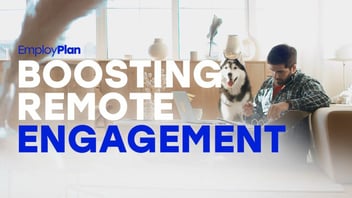In the fast-evolving technology services industry, staying ahead of the curve means more than just hiring the right talent; it requires ongoing development to keep skills relevant. The rapid pace of change in fields such as cloud migration, software development, and digital transformation means that yesterday's expertise may not be enough to tackle today's challenges. Yet, many firms still overlook the importance of continuous learning, failing to provide opportunities for professional development and hands-on experience. This oversight can have significant costs—both in terms of employee performance and overall project success.
A report by McKinsey & Company highlights that 87% of executives experience skill gaps within their workforce, or expect them in the near future, and cite the lack of continuous learning as a major reason for these gaps (McKinsey & Company, 2020). When continuous learning is neglected, organizations often rely on employees whose skills have become outdated. In an industry driven by innovation, this stagnation can result in costly project delays, increased risks, and subpar outcomes. For tech services firms handling complex projects like cloud migrations, the difference between a well-trained, up-to-date team and a stagnant one can mean the difference between a successful project and a costly failure. Without continuous learning, the risk of mismatched skills, ineffective resource allocation, and compromised project quality rises substantially.
 EmployPlan addresses this critical gap by integrating continuous learning into its resource management platform. Unlike traditional systems that focus solely on role-based assignments or certifications, EmployPlan emphasizes the value of tracking ongoing learning events, from formal training courses to self-directed initiatives. According to a study by the Association for Talent Development (ATD), organizations that offer comprehensive training programs have 218% higher income per employee compared to those that do not (ATD, 2019). By capturing this data, EmployPlan helps firms ensure that their teams are not only equipped with the necessary certifications but also have the practical, up-to-date skills needed to excel in dynamic project environments.
EmployPlan addresses this critical gap by integrating continuous learning into its resource management platform. Unlike traditional systems that focus solely on role-based assignments or certifications, EmployPlan emphasizes the value of tracking ongoing learning events, from formal training courses to self-directed initiatives. According to a study by the Association for Talent Development (ATD), organizations that offer comprehensive training programs have 218% higher income per employee compared to those that do not (ATD, 2019). By capturing this data, EmployPlan helps firms ensure that their teams are not only equipped with the necessary certifications but also have the practical, up-to-date skills needed to excel in dynamic project environments.
Continuous learning also fosters a culture of adaptability and resilience within tech services firms. As employees are encouraged to develop new skills and stay informed about emerging technologies, they become more capable of adapting to changes in project requirements or market conditions. Research from Deloitte found that organizations that foster continuous learning are 92% more likely to innovate, making adaptability a key competitive advantage (Deloitte, 2021). This adaptability is particularly important in areas like cloud migration, where technologies evolve rapidly, and the ability to innovate and solve new challenges can make or break a project's success.
By tracking both formal training and hands-on learning experiences, EmployPlan creates a detailed picture of each employee's capabilities, ensuring that resource allocation decisions are based on demonstrated skills and not outdated qualifications. This approach not only improves project outcomes but also supports employee engagement and retention. According to Gallup, employees who feel their development is supported are 3.6 times more likely to be engaged at work (Gallup, 2020). When team members feel that their growth is valued and supported, they are more likely to stay motivated and committed to their roles.
Ultimately, the cost of ignoring continuous learning in tech services is too high to overlook. Firms that fail to invest in their employees' ongoing development risk falling behind their competitors, delivering substandard projects, and damaging their client relationships. EmployPlan’s integrated approach to continuous learning ensures that teams are not only efficient but also effective, ready to meet the challenges of today and the opportunities of tomorrow with the skills and confidence needed to succeed.
References
-
McKinsey & Company. (2020). "The Next Normal: Reimagining the Workforce in a Post-Pandemic World."
-
Association for Talent Development (ATD). (2019). "The Impact of Learning on Organizational Performance."
-
Deloitte. (2021). "Future of Work: Learning and Development as a Competitive Advantage."
-
Gallup. (2020). "The State of the Global Workplace."


